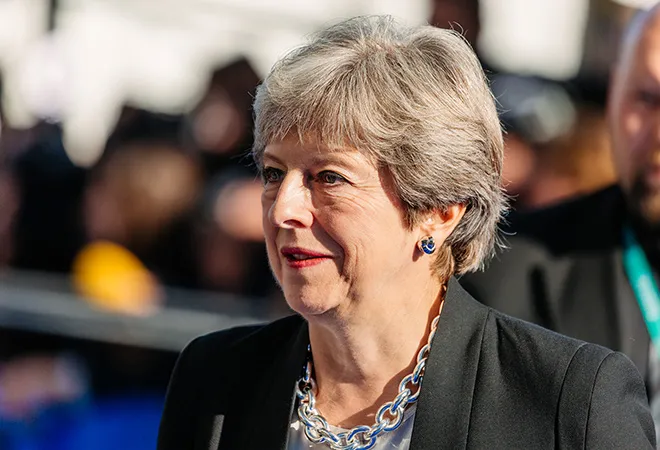The British prime minister, Theresa May, finally announced a Brexit deal. It led to some initial turmoil: after the cabinet cleared it, some high-profile ministers decided to quit. Boris Johnson, who has been an ardent Brexiteer, made a show of his displeasure with what May proposed. This plan is for a far closer relationship with the European Union than what Brexiteers had desired. Those who had been most vocal about the need to leave the EU are not happy, but they continue to differ among themselves with regard to the best way forward. The Conservatives remain as divided as ever on Europe, but they know that a decision is needed and May has made the first move.
This agreement is Britain's preferred way forward as negotiations with the EU reach a crucial stage. As part of this understanding, even after Brexit the United Kingdom will continue to share a common rule book for all goods with the EU, including agricultural products. In line with Britain's aversion to the European Court of Justice, it is proposing to set up a joint institutional framework to interpret UK-EU agreements. In order to safeguard ties with Ireland, the borders between the UK and EU will be treated as a "combined customs territory". Most significant, it is proposing to end free movement, "giving the UK back control over how many people enter the country".
As is clear from remarks by major companies, the Brexit deal will have significant implications for the British economy. It has been suggested by Jaguar Land Rover, for example, that a "bad" Brexit deal will threaten £80 billion worth of investment plans for the UK and may force it to close factories. In spite of such dire warnings, however, the focus remains on immigration. It was the issue of immigration, after all, which made Brexit possible, and so it is this aspect that will receive the greatest scrutiny.
This is happening at a time when disputes over immigration have divided the EU. The German chancellor, Angela Merkel, is under pressure to take a harder line on the matter. The French president, Emmanuel Macron, has passed tough immigration legislation. In the Swedish elections, the Sweden Democrats have used anti-immigration rhetoric to become the front runners. Southern nations such as Italy and Greece are angry that they are not getting any worthwhile support from the EU community to deal with immigration even as the countries in north blame the south for not patrolling their Mediterranean borders better. This issue became so divisive that it led to a change of government in Italy. The centre-left government of the former Italian prime minister, Paolo Gentiloni, had threatened to close Italy's ports to migrant rescue vessels not licensed by the Italian authorities. He wanted other EU nations to help in managing migrant arrivals. But he was ignored, and as a result, the Eurosceptic government of Giuseppe Conte came to power with the slogan, 'Italians first'. One of its first moves was to prevent the Aquarius - a boat carrying migrants and operated by a charity - from docking at an Italian port.
Across the EU, politicians are using anti-immigration rhetoric to challenge the order in place since the end of the Second World War. Together, they are pushing for immigration to be at the centre of the EU agenda even as mainstream political parties are struggling to take the challenge head on. The EU remains divided over the Dublin Regulation - under which the country where a migrant first arrives usually has to process his asylum claim - as there is no consensus on what to do with migrants who do reach Europe. The acrimony has reached a level where the Schengen visa is under threat. This system, widely considered to be the EU's flagship achievement, allowed foreign visitors to travel throughout the area using one visa.
No wonder there is a sense of an impending danger. "The fragility of the EU is increasing," warned the EU Commission chief, Jean-Claude Juncker. Whatever happens to the EU will affect the future of the global liberal order.
This commentary originally appeared in The Telegraph.
The views expressed above belong to the author(s). ORF research and analyses now available on Telegram! Click here to access our curated content — blogs, longforms and interviews.




 PREV
PREV


